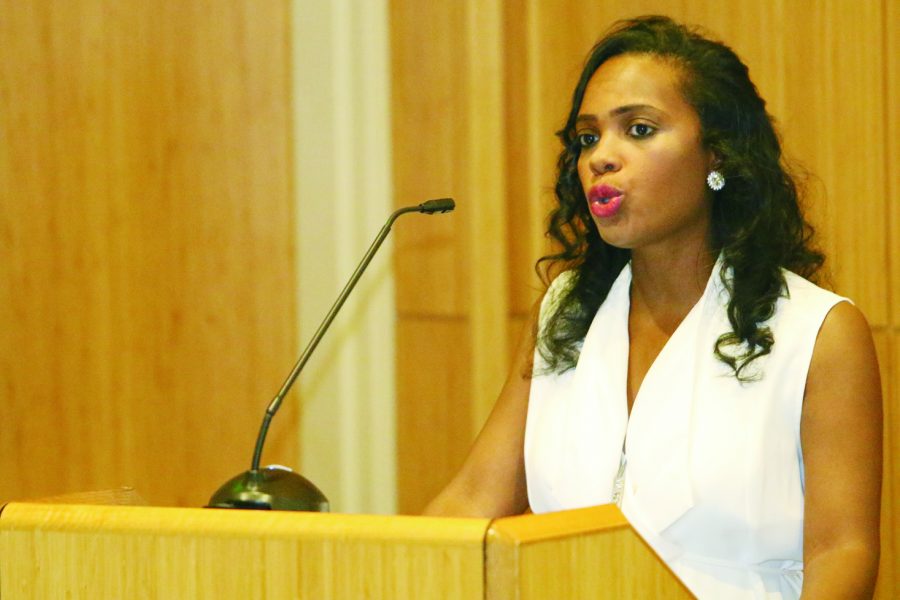Brown-Pellum encourages audience to reclaim the history of all HBCUs
The University Programs and Activities Board (UPAAB) hosted the first Thomas C. Steward Distinguished Lecture Series for the 2018-19 academic year in Ballroom A of the John Garrick Hardy Center on June 4 at 4 p.m. featuring Kimberly Brown-Pellum, PhD, an assistant professor in the graduate school of Texas Southern University and a former history professor at Alabama State University.
As an HBCU (historically black college a university) graduate herself, Brown-Pellum spoke about the importance of reclaiming the history of HBCUs in the face of white supremacy to which she responded, “don’t use valuable time asking dumb questions.”
Brown-Pellum used many examples of how the history of HBCUs has been overshadowed within history books.
“The Greensboro sit-ins which should have really been called the North Carolina A&T student sit-ins, the Montgomery Bus Boycott should have been called the Alabama State University Bus Boycott,” Brown-Pellum said.
Known for her distinct style of teaching, it was no surprise that a number of her former students and fans sat in the crowd. Among those audience members, was Rep. John Knight, a local public servant who is most famously known for his role in the Knight v. State of Alabama court case, which Brown-Pellum referred to as “a case of reparations.”
Upon request by Brown-Pellum, Knight stood and briefly explained the importance of the Knight v. State of Alabama case for the audience. He began by stating that the case lasted for 20 years and was essentially about how the dual system of higher education in Alabama was unfair to HBCUs. The branch campuses of larger predominantly white universities (PWIs), were acting in direct competition with its surrounding HBCUs. As a result of Knight v. State of Alabama, these branches were no longer able to create new programs allowing universities such as Alabama State and Alabama A&M to expand its current offerings.
“We were given the opportunity of a lifetime and it’s up to us,” Knight said defining the importance of the lawsuit. “All we are missing is the willpower, from faculty, students, etc. There are people on campus who really care about you!”
Continuing the conversation of HBCUs and their importance, Brown-Pellum gave a list of ten discussion questions for the audience members to think about. The first being, “how do we pursue real reparations? How do we recreate this (Knight v. Alabama)?”
The second touched on a topic currently surrounding the media about prestigious PWIs admitting to both their role in the slave trade and their use of slave labor. After giving background, Brown-Pellum asked how do we hold them accountable for this? Their way of apologizing for their past, has been to give scholarships to students who can trace their ancestry to the slaves who worked on their various campuses, which she said was both unlikely and unrealistic. Her suggestion, was that these universities sponsor HBCUs.
Furthermore, the discussion questions touched on topics such as focusing on the youth, connecting tradition and innovation, expanding institutional pride outside of athletics, using technology to our advantage, sponsorship for celebrities, and developing a better understanding of institutional power as means of furthering the development of HBCUs.
“HBCUS allow black students to be themselves and provide these students with everything they say they need. There is a family atmosphere, strong networks, smaller class size, affordability etc,” she said urging students to take advantage of the place they are at right now.


